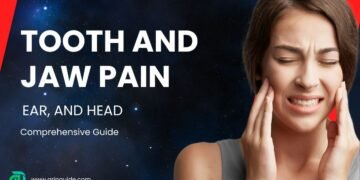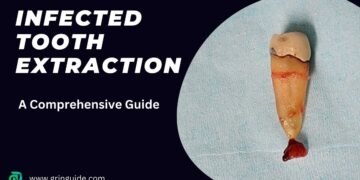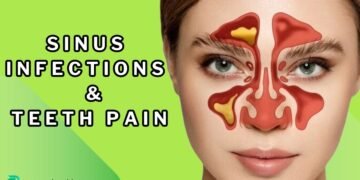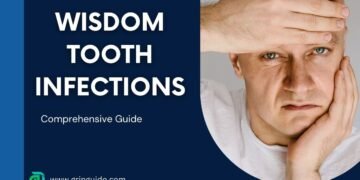Table of Contents
Introduction
Antiseptic mouthwash is a liquid solution designed to reduce or eliminate bacteria in the mouth, thereby promoting oral hygiene. Unlike regular mouthwash, which primarily freshens breath, antiseptic varieties contain active ingredients specifically formulated to target and neutralize harmful microorganisms. Common active ingredients include chlorhexidine, cetylpyridinium chloride, and essential oils like eucalyptol and thymol. These components work synergistically to disrupt the cell walls of bacteria, rendering them inactive and preventing their proliferation.
Incorporating antiseptic mouthwash into daily oral care routines can significantly enhance overall dental health. By reducing the bacterial load in the mouth, antiseptic mouthwash helps prevent common dental issues such as gingivitis, plaque buildup, and bad breath. It acts as an adjunct to brushing and flossing, reaching areas that might be missed by mechanical cleaning methods alone. This makes it especially beneficial for individuals with orthodontic appliances or those who are prone to periodontal diseases.
The primary purpose of using antiseptic oralwash is to maintain a balanced oral microbiome. A healthy oral environment is crucial not just for preventing cavities and gum diseases, but also for overall systemic health. Research has shown that oral health is closely linked to conditions such as heart disease, diabetes, and respiratory infections. By controlling harmful bacteria in the mouth, antiseptic mouthwash contributes to a holistic approach to health maintenance.
As we delve deeper into the various applications and benefits of antiseptic mouthwash, it becomes evident that this simple yet powerful tool plays a vital role in modern oral hygiene practices. Whether used as a preventive measure or a therapeutic intervention, antiseptic oralwash offers a convenient and effective means to bolster oral health.
Antiseptic Mouthwash for Tooth Infection
Tooth infections can be a significant source of discomfort, manifesting through symptoms such as severe pain, swelling, and sensitivity. These infections often arise from untreated cavities, gum disease, or dental injuries, leading to the proliferation of bacteria within the tooth or surrounding tissues. While professional dental intervention is crucial for treating tooth infections, the use of antiseptic oralwash can play a supportive role in managing symptoms and promoting oral health.
Antiseptic oralwash is formulated to reduce bacterial load in the oral cavity, which can be particularly beneficial in the context of tooth infections. The mouthwash works by targeting and eliminating harmful bacteria, thereby helping to mitigate pain and inflammation. Regular use of an antiseptic mouthwash can decrease the bacterial count, potentially preventing the infection from worsening and providing temporary relief from discomfort.
It is important to note that while antiseptic oralwash can alleviate some symptoms associated with tooth infections, it is not a standalone treatment. Dental infections often require a comprehensive approach, including antibiotics and possibly dental procedures such as root canals or extractions. Antiseptic mouthwash should be used as an adjunct to these treatments, rather than a replacement. Following a dentist’s advice on the appropriate use of antiseptic oralwash will ensure that it complements other prescribed treatments effectively.
Incorporating antiseptic oralwash into daily oral hygiene routines can also serve as a preventive measure against future infections. By maintaining a cleaner oral environment, the risk of developing new infections diminishes. Thus, while antiseptic mouthwash is valuable for managing acute symptoms, its role in long-term oral health maintenance should not be overlooked.
Antibacterial vs. Antiseptic Mouthwash: What’s the Difference?
Understanding the distinction between antibacterial and antiseptic oralwash is crucial for making informed oral hygiene choices. Though often used interchangeably, these two types of mouthwashes have different mechanisms of action and specific applications.
Antibacterial mouthwash primarily targets bacteria in the oral cavity. It contains active ingredients such as cetylpyridinium chloride (CPC) or essential oils like eucalyptol and thymol. These components work by disrupting the cell walls of bacteria, leading to their elimination. Antibacterial mouthwashes are particularly effective in reducing plaque formation and preventing gingivitis, making them a preferred option for individuals dealing with bacterial-related oral health issues.
On the other hand, antiseptic mouthwash has a broader spectrum of action. It not only targets bacteria but also combats viruses and fungi. Common active ingredients in antiseptic mouthwashes include chlorhexidine gluconate, hydrogen peroxide, and alcohol. Chlorhexidine, for instance, works by adhering to the oral tissues and releasing its antimicrobial properties over time, thus providing prolonged protection. This extended action makes antiseptic mouthwash highly effective in treating a wider range of oral infections and maintaining overall oral hygiene.
When choosing between antibacterial and antiseptic mouthwashes, the specific oral health needs of the individual should be considered. For routine plaque control and prevention of bacterial infections, an antibacterial mouthwash may suffice. However, for those needing a more comprehensive antimicrobial effect—such as patients undergoing dental surgery or those with compromised immune systems—an antiseptic mouthwash would be more beneficial.
In conclusion, while both antibacterial and antiseptic mouthwashes serve important roles in oral hygiene, their distinct mechanisms and ingredients cater to different needs. Understanding these differences can help individuals select the most appropriate mouthwash for their specific conditions, ensuring effective and targeted oral care.
The Benefits of Antibacterial Mouthwash
Antibacterial mouthwash, also known as antiseptic mouthwash, offers numerous benefits for maintaining oral health. One of the primary advantages is its ability to significantly reduce the bacterial load in the mouth. By targeting and eliminating harmful bacteria, these mouthwashes help create an environment less conducive to dental issues such as cavities and bad breath.
Moreover, antiseptic mouthwash plays a crucial role in preventing plaque buildup. Plaque, a sticky film of bacteria that forms on teeth, can lead to serious dental problems if not adequately controlled. Regular use of antibacterial mouthwash can inhibit the formation of plaque, thereby reducing the risk of tooth decay and gum disease. A study published in the Journal of Clinical Periodontology highlights that participants who used mouthwash containing antibacterial agents showed a marked decrease in plaque and gingivitis compared to those who did not.
Another significant benefit of antiseptic mouthwash is its effectiveness in preventing gingivitis, an early stage of gum disease characterized by inflammation and bleeding of the gums. Gingivitis, if left untreated, can progress to more severe periodontal diseases. By incorporating antibacterial mouthwash into daily oral hygiene routines, individuals can decrease the incidence of gingivitis and maintain healthier gums. For instance, a clinical trial conducted by the American Dental Association found that the regular use of an antiseptic mouthwash reduced gingivitis symptoms by up to 30% over six months.
Beyond oral health, the benefits of antibacterial mouthwash extend to overall health. Studies have indicated a potential link between oral bacteria and systemic conditions such as cardiovascular disease and diabetes. By controlling the bacterial population in the mouth, antiseptic mouthwash may contribute to a lower risk of these systemic issues. Although more research is needed to fully understand these connections, the preliminary findings are promising.
Incorporating antiseptic mouthwash into one’s oral care regimen can lead to a multitude of health benefits, from reducing bacterial load and preventing plaque and gingivitis to potentially mitigating broader health risks. As the scientific evidence suggests, this simple addition to daily oral hygiene can have profound impacts on both oral and overall health.
Alcohol-Free Antiseptic Mouthwash: Pros and Cons
Alcohol-free antiseptic mouthwash has become a popular choice for many individuals, and for good reasons. One of the primary advantages is its gentler formulation. Traditional oralwashes containing alcohol can sometimes cause a burning sensation or irritation, which can be particularly uncomfortable for people with sensitive gums or oral tissues. Alcohol-free options mitigate this issue, providing a more soothing experience without sacrificing the antiseptic properties necessary to combat oral bacteria and maintain dental hygiene.
Another significant benefit of alcohol-free antiseptic mouthwash is its suitability for a wider audience, including children. Since these products do not contain alcohol, there is a reduced risk of accidental ingestion leading to adverse effects. This makes them a safer option for younger users, ensuring that they can benefit from an effective oral hygiene routine without the potential hazards associated with alcohol-based products.
Additionally, alcohol-free mouthwashes are less likely to cause dry mouth, a condition known medically as xerostomia. Alcohol can contribute to the dehydration of oral tissues, leading to discomfort and potentially increasing the risk of cavities and gum disease. By opting for an alcohol-free antiseptic mouthwash, users can maintain adequate saliva production, which is essential for natural oral health defenses and overall comfort.
However, there are some potential drawbacks to consider. One concern is whether alcohol-free antiseptic mouthwash is as effective as its alcohol-containing counterparts. Alcohol is known for its strong antiseptic properties, which can effectively kill a wide range of bacteria. While alcohol-free formulations also possess antibacterial agents, some users and dental professionals question whether they provide the same level of microbial control.
Moreover, the flavor and aftertaste of alcohol-free mouthwashes might differ from what some users are accustomed to. The absence of alcohol can result in a less intense “clean” feeling, which might be perceived as less effective, even if the product is performing adequately.
In summary, alcohol-free antiseptic mouthwash offers numerous benefits, particularly for individuals with sensitive oral tissues, children, and those prone to dry mouth. However, potential users should weigh these advantages against the perceived effectiveness and personal preference for taste and sensation when making their choice.
Antiseptic Mouthwash for Gum Infection
Gum infections, often manifesting as gingivitis or periodontitis, present with symptoms such as swelling, redness, bleeding, and tenderness in the gums. These conditions result from bacterial plaque accumulating around the gum line, leading to inflammation and potential destruction of the tissues supporting the teeth. Effective management and treatment of gum infections are crucial to maintaining oral health, and antiseptic mouthwash can play a pivotal role in this process.
Antiseptic oralwash is formulated to target and eliminate harmful bacteria that contribute to gum infections. The active ingredients in these mouthwashes, such as chlorhexidine, cetylpyridinium chloride, or essential oils, work by disrupting the bacterial cell walls, thereby reducing the bacterial load in the mouth. This reduction in bacteria helps to alleviate inflammation and prevent further progression of the infection. By regularly using an antiseptic mouthwash, individuals can experience a significant decrease in gum swelling and bleeding, promoting healthier gums.
Incorporating antiseptic mouthwash into a comprehensive gum disease treatment plan involves more than just rinsing. For optimal results, it should be used alongside proper brushing and flossing techniques, as well as regular dental check-ups. Dentists often recommend using mouthwash twice daily after brushing and flossing to ensure that the active ingredients have sufficient contact time to exert their antibacterial effects. Additionally, patients should follow any specific instructions provided by their dental professional, as misuse of antiseptic mouthwash can lead to side effects such as altered taste sensation or staining of the teeth.
Overall, antiseptic mouthwash serves as a valuable adjunct in the management of gum infections. By reducing harmful bacteria and inflammation, it supports the healing process and helps maintain a healthy oral environment. For those dealing with gum infections, integrating an antiseptic mouthwash can be a vital step towards achieving and preserving gum health.
How to Choose the Right Mouthwash for Your Needs

Choosing the right antiseptic mouthwash involves considering various factors related to your personal oral health needs. To make an informed decision, begin by identifying any specific dental issues you may have. For instance, individuals with gum disease may benefit from a mouthwash containing chlorhexidine, known for its potent antibacterial properties. Conversely, those prone to cavities might opt for a fluoride-based mouthwash to help strengthen enamel and prevent decay.
Another critical factor is ingredient sensitivity. People with sensitive gums or allergies should carefully examine the ingredient list. Avoiding mouthwashes with harsh chemicals, artificial flavors, or colors can reduce the risk of irritation. Instead, look for mouthwashes with natural ingredients like aloe vera or tea tree oil, which can provide soothing effects without causing adverse reactions.
Preferences regarding the presence of alcohol in mouthwash also play a significant role. Alcohol-based mouthwashes are effective in killing bacteria and providing a deep clean. However, they can cause dryness or discomfort for some users. In such cases, alcohol-free formulations can be just as effective while offering a gentler experience. These alternatives often contain cetylpyridinium chloride (CPC) or essential oils, which serve as effective antiseptic agents without the drying effects of alcohol.
Consulting with dental professionals can provide valuable insights tailored to your specific needs. Dentists can recommend products based on your oral health history and current condition, ensuring that you select a mouthwash that offers optimal benefits. Additionally, they can provide guidance on the proper use and frequency of mouthwash to maximize its effectiveness.
Ultimately, the right antiseptic mouthwash should align with your individual requirements, offering both efficacy and comfort. By considering factors such as dental issues, ingredient sensitivities, and preferences for alcohol content, you can make a well-informed choice that contributes to your overall oral health.
Conclusion and Final Thoughts
Antiseptic mouthwash plays a crucial role in maintaining optimal oral health. As discussed, its benefits extend beyond merely freshening breath. Regular use of antiseptic oralwash can significantly reduce the presence of harmful bacteria, thereby minimizing the risk of gum disease and dental infections. This form of mouthwash is particularly effective in reaching areas of the mouth that brushing and flossing might miss, offering a comprehensive approach to oral hygiene.
Furthermore, the preventive nature of antiseptic mouthwash can be a valuable addition to your daily routine. By incorporating it into your oral care regimen, you can enhance the overall effectiveness of your dental hygiene practices. It is essential to choose a mouthwash that suits your specific needs, whether you are looking for general protection or targeting specific issues such as gingivitis or plaque buildup.
However, it is important to remember that while antiseptic oralwash is a powerful tool, it should not replace regular brushing and flossing. Instead, it should complement these practices to provide a more thorough clean. Consulting with your dentist can provide personalized recommendations tailored to your oral health needs, ensuring that you select the most appropriate product and use it correctly.
In summary, incorporating antiseptic oralwash into your daily oral hygiene routine offers multiple benefits, from enhanced bacterial control to improved gum health. By understanding its proper use and consulting with dental professionals, you can maximize the advantages it provides. Remember, a holistic approach to oral care will help you maintain a healthy and confident smile.
FAQs
-
What is an Antiseptic Mouthwash?
An antiseptic mouthwash is a liquid solution designed to kill or inhibit the growth of microorganisms in the mouth. These mouthwashes contain ingredients such as chlorhexidine, alcohol, or essential oils, which help reduce bacteria and prevent infections. Antiseptic mouthwashes are often recommended for maintaining oral hygiene and preventing gum disease.
-
Antiseptic vs. Antibacterial Mouthwash: Which is Better?
While both antiseptic and antibacterial mouthwashes aim to reduce bacteria, they work differently. Antiseptic mouthwashes target a broad range of microorganisms, including bacteria, viruses, and fungi. In contrast, antibacterial mouthwashes specifically target bacteria. The choice between the two depends on individual needs. Antiseptic oralwash may be better for those requiring broad-spectrum protection, while antibacterial mouthwash is suitable for targeting bacterial infections.
-
What Do Dentists Use as Antiseptic Mouthwash?
Dentists often use chlorhexidine gluconate as an antiseptic oralwash. Chlorhexidine is known for its effectiveness in reducing plaque and gingivitis. It is typically prescribed for short-term use to manage specific dental conditions. Dentists may also recommend mouthwashes containing essential oils or alcohol for their antiseptic properties.
-
When to Use Antiseptic Mouthwash?
Antiseptic oralwash can be used in various situations, such as after dental procedures, to manage gum disease, or to maintain general oral hygiene. It is usually recommended to use it twice daily, after brushing and flossing, to maximize its benefits. However, it’s essential to follow the advice of a dental professional for specific usage instructions.
-
Can I Drink Water After Using Antiseptic Mouthwash?
It is generally advised to avoid eating or drinking for at least 30 minutes after using antiseptic oralwash. This waiting period allows the active ingredients to work effectively in reducing bacteria and promoting oral health.
-
When Not to Use Mouthwash?
There are certain situations when mouthwash should be avoided. For instance, children under six years old should not use mouthwash due to the risk of swallowing. Additionally, individuals allergic to any of the ingredients in the mouthwash should avoid its use. Always consult a dentist before starting a new mouthwash regimen to ensure it is appropriate for your specific needs.











